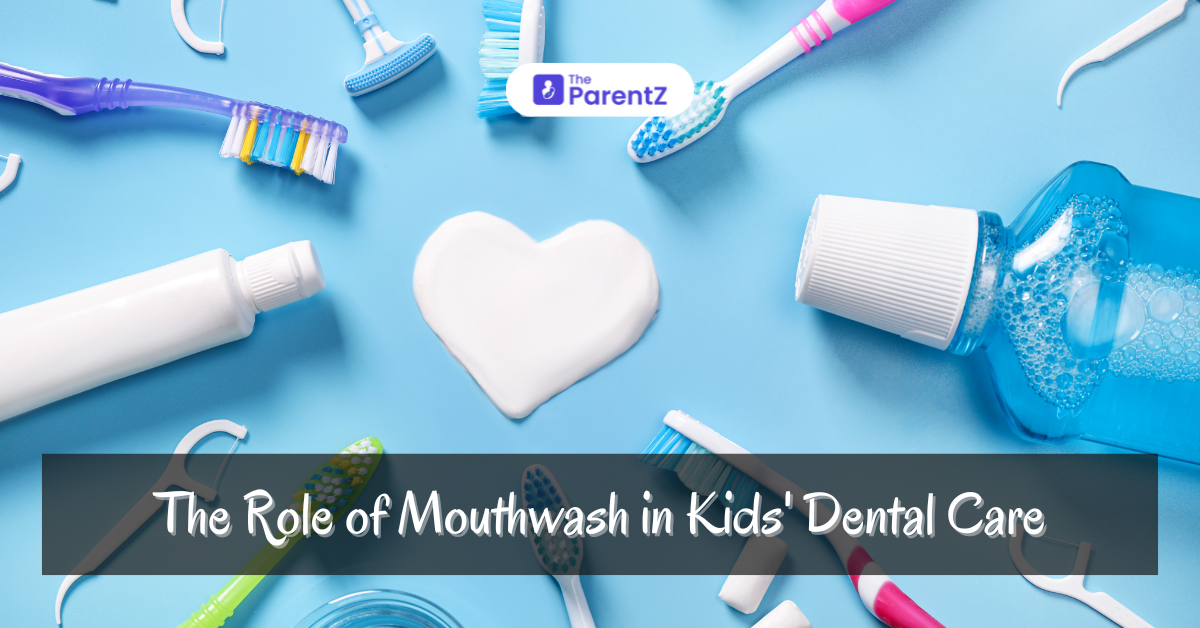Mouthwash, often considered an essential part of adult oral hygiene routines, also plays a significant role in children’s dental care. When used appropriately, mouthwash can provide therapeutic benefits and preventive care, aiding in the maintenance of healthy teeth and gums. However, it is crucial to understand the safe composition of mouthwashes for children and their specific oral health needs.
Therapeutic Benefits of Mouthwash for Children
Mouthwash can offer therapeutic benefits in managing specific dental issues in children:
1. Gingivitis and Gum Health: Some mouthwashes contain ingredients like chlorhexidine, which can help reduce plaque and gingivitis. For children experiencing early signs of gum disease, these therapeutic mouthwashes can be a helpful adjunct to brushing and flossing. However, these should be used under the guidance of a dentist, as they are generally recommended for short-term use.
2. Antimicrobial Action: Mouthwashes containing essential oils or fluoride can reduce oral bacteria, thus helping prevent cavities and periodontal diseases. In children with orthodontic appliances, where brushing and flossing might be challenging, antimicrobial mouthwashes can help reduce the microbial load and protect against demineralization.
3. Managing Bad Breath: Bad breath, or halitosis, can sometimes be a concern in children due to various factors like diet, oral hygiene habits, or medical conditions. Mouthwashes with antibacterial properties can help manage this by reducing the bacteria responsible for bad breath.
Preventative Care and Mouthwash
Mouthwash can also play a preventative role in children’s oral health care:
1. Fluoride Mouthwash for Cavity Prevention: Fluoride is a key ingredient in many children’s mouthwashes due to its ability to strengthen tooth enamel and prevent cavities. Fluoride mouthwash can be particularly beneficial for children at high risk of dental caries or those living in areas with non-fluoridated water supplies.
2. Plaque and Tartar Control: Mouthwashes designed to control plaque and tartar can help prevent the buildup of these substances on teeth. By reducing plaque, these products help minimize the risk of cavities and gum disease.
3. Sensitivity Relief: Some mouthwashes contain ingredients like potassium nitrate or stannous fluoride, which can help alleviate tooth sensitivity—a condition that some children may experience, particularly after orthodontic treatment or due to enamel erosion.
Safe Composition of Mouthwash for Children
Safety is paramount when selecting mouthwash for children. The following considerations are essential:
1. Alcohol-Free Formulations: Mouthwashes for children should ideally be alcohol-free. Alcohol can cause a burning sensation, irritation, and is not suitable for children, especially if accidentally swallowed.
2. Appropriate Fluoride Levels: While fluoride is beneficial, the concentration in children’s mouthwashes should be appropriate for their age. Excessive fluoride can lead to dental fluorosis, a condition that affects the appearance of the teeth. Parents should supervise the use of fluoride mouthwash and ensure children do not swallow it.
3. No Harsh Chemicals: Mouthwashes should be free from harsh chemicals, artificial colors, and strong flavors that might deter children from using them or cause irritation.
4. Child-Friendly Packaging and Dosage: Mouthwash containers should be childproof, and the product should come with clear instructions on the appropriate dosage. It is also beneficial if the mouthwash has a pleasant taste, making it more appealing for children to use.
Guidelines for Use
- Age Appropriateness: Mouthwash is generally recommended for children over six years old who can reliably swish and spit without swallowing.
- Supervision: Parents should supervise their children’s use of mouthwash to ensure proper technique and prevent ingestion.
- Routine Integration: Mouthwash should complement, not replace, regular brushing and flossing.
Conclusion
Mouthwash can be a valuable addition to a child’s dental care routine, offering both therapeutic and preventative benefits. However, choosing a product with a safe composition and using it appropriately is crucial. By selecting the right mouthwash and following best practices, parents can help their children maintain healthy teeth and gums, laying a solid foundation for lifelong oral health.








Be the first one to comment on this story.